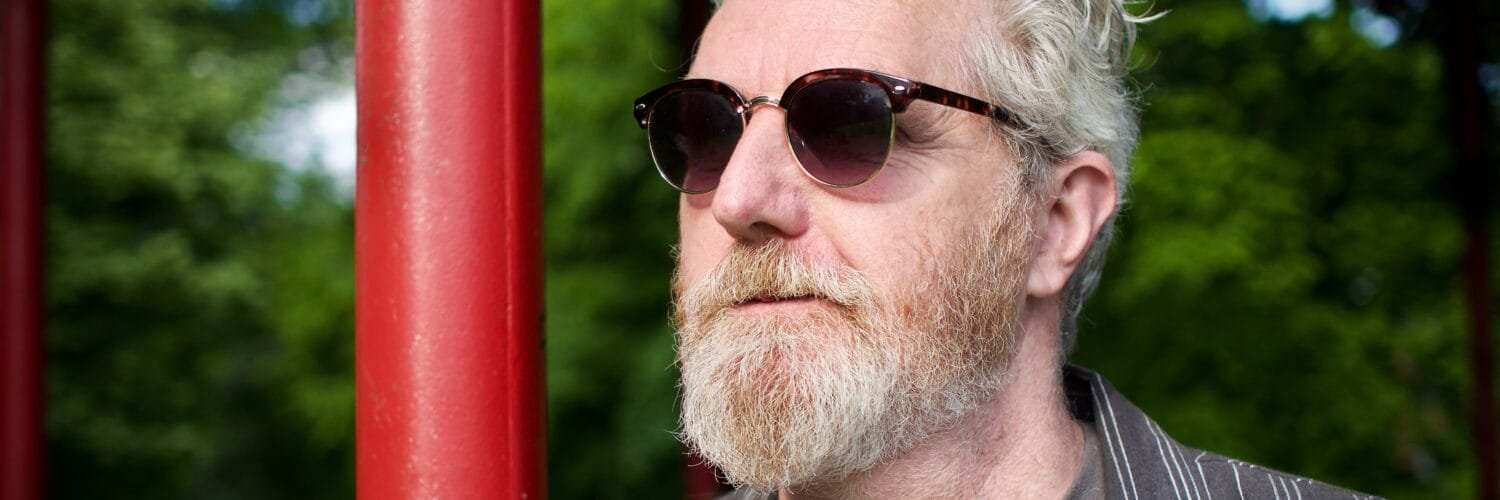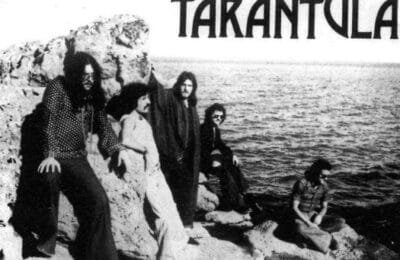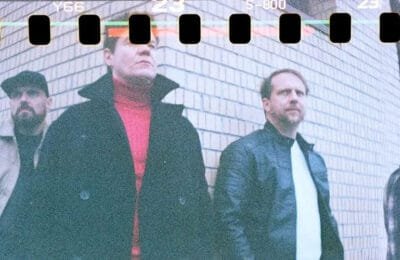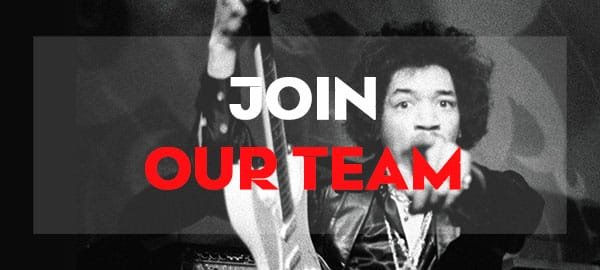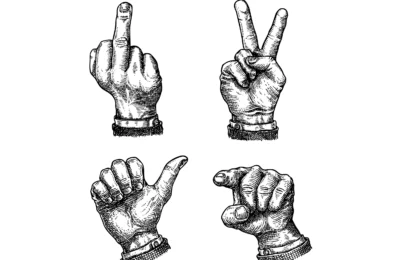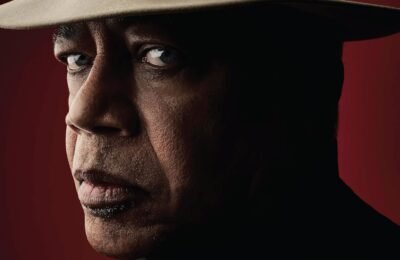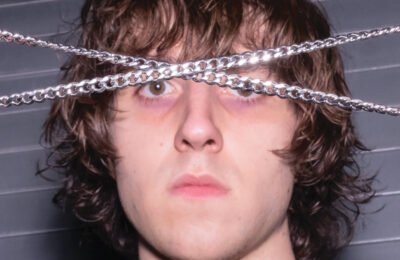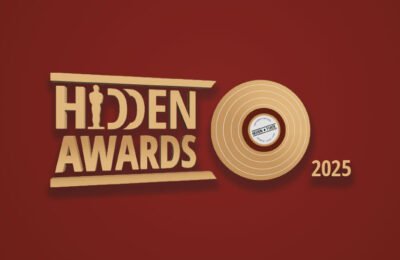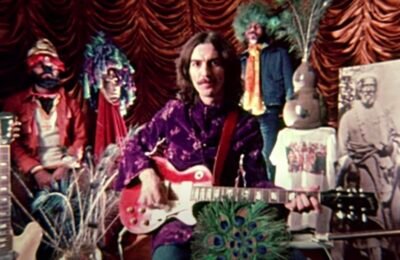Mike Finn is a busy man. Always travelling by train between Dublin and Limerick, his cherished hometown. Lately, he was working on two different plays: The Rising of The Women, and of course Wreckquiem.
The Rising of the Women is a very interesting play telling the story of John Ford’s visit to Limerick in 1956 to shoot The Rising of the Moon when over 200 women extras went on strike. « An interesting snapshot of Ireland at the time » according to the playwright « and how these very strong, bolshy women, who were happy to go and strike, could be brought to heel by a priest ». The play was running from May 12th to 16th, in front of King John’s Castle, and in St-Munchin’s church in Limerick.
We manage to meet in the Belltable, a place dear to Mike Finn as he premiered is first major play, Pigtown, there in 1999, and did a residence in 2017. He joined me there on his way back from the final rehearsal for The Rising of The Women. We exchanged for a while, in the vibrant lobby of the venue, about his new play Wreckquiem, which set in a record shop. We talked extensively about music, drama, ‘progress’, life, death and the universe…and how he saved U2 from hanger.

Mike Finn’s Previous Work
There is a deep connection with Limerick in your plays: Pigtown, Bread Not Profit, The Rising of the Women… You also had a residence here at the Belltable… Was it the logical choice to premiere Wreckquiem ?
Yes, I think so. I wrote it when I was artist in residence here in this very building of the Belltable. I was primarily writing Bread Not Profits. As a sidebar, I started writing Wreckquiem, primarily for a competition that Fishamble were running: “A play for Ireland”. It didn’t win, but it was shortlisted. So I got to complete the play.
It’s set in a secondhand record shop in Limerick that’s under threat from a developer. Because it’s about Limerick — almost all my work is about Limerick— I like to premiere here, in the place where it’s set. It made perfect sense.
In your previous work, you often incorporate music into the play. It was the case with Pigtown, Bread Not Profit, The Unlucky Cabin Boy as well… Where did it start? How important is music in your writing process ?
It’s pretty important. Music is so important in most people’s lives, it is an emotional shortcut. You can write about people’s emotions, but often music will take you places much quicker than any of the words will do. Which is maybe why films give such importance to soundtracks.
It’s always been a kind of passion of mine. I grew up listening to records, buying records. I worked on a pirate radio station years ago. Wreckquiem is a love story to vinyl, and how we used to listen to music. It’s a look back at some of the old independent record shops that used to be around Limerick. So yeah, of all the things that I’ve done, this is probably the one that is mostly overtly about music.
You mention music being a shortcut for emotions. Your writing has, especially in your monologues, some sort of musicality that triggers an emotional response in the audience.
Perhaps. Over the years I’ve been tuned into the way Limerick people speak. The way working Class Limerick people speak. There is a musicality to that. There’s a particular English that we speak in this country, which is different from English anywhere else. Hiberno-English is kind of a dialect of English. I guess that comes out in the way people speak.

Mike Finn presents: Wreckquiem
I know that Wreckquiem is long pending project, waiting patiently to come out since before COVID… When did the idea came to you first? How did it evolve ?
It has been a long process to get it. Gosh, it’s been about eight or nine years. It was first developed over a period of about a year and it’s been in fairly good nick since then. I keep redrafting it because it’s set in the present day. It was probably ready to go on in 2019 or 2020. Of course, COVID got in the way of it and we had to put a pause on that.
Then we had to wait to get the grant from the Arts Council —which we’re very grateful for. We also have a terrific cast. So we had to wait, to make sure that those people, that we were after from the start, were available. So it’s taken us until now, but I think it’ll be worth the wait.
I’m sure it will be…Are you excited now that it’s coming out?
Absolutely. I’m really excited because I believed in this play for a long time. With the risk of sounding cocky, I think it is one of the best things I’ve done. I’m really proud of it.
We got terrific cast. Andrew Flynn is a brilliant director. I haven’t worked with him before, but I’ve loved his work. Getting to work with some people I’ve worked with a lot, like Pat Shortt, Joan Sheehy and Patrick Ryan. Also Marc O’Regan. I’ve never worked with him, but I’ve known his work for the longest time. He’s a terrific actor. And Sade Malone, who’s a young actress I’ve seen her in a couple of plays in Dublin. She’s amazing. I’m really excited about this.

You’ve had a long creative partnership with Pat Shortt. Did you write the part of Dessie with him in mind? It feels like a natural fit.
Absolutely. He’s a good mate of mine. I know his work. His comic chops are beyond question, but his serious acting is terrific as well. So I wrote it with him in mind. I thought he would be just perfect. He has a great love of music. He’s a musician himself: he’s a quite a talented saxophonist and plays a number of different instruments…
I wanted to work with him on a play for the longest time. And I finally get to do this. If he wasn’t available or couldn’t do it I really don’t know who else would have been doing it.
The relationship between Dessie and Fintan is fascinating. They were close friends, sharing a love for music, being part of the same band… and end up so far away from each other. How do you explain the shift in Fintan’s life and his drift from of music?
You’re right. The two principal characters, the protagonist and the antagonist, were close at one point. They’re in the same band. They have a history. And just life changes people. In terms of drama, it just makes more sense if they’re now at loggerheads. There’s much more at stake if they once were friends, and had a lot of interest in common.
The Greeks, who invented drama as we know it, they were really good on this. A classic example:
- Young man murders another man: that’s pretty dramatic.
- Man murders his father: it’s really dramatic!
- Man murders his father and then… sleeps with his mother: yeah! Now you’ve got a play: that’s Oedipus!
If they were complete strangers, they would still be at loggerheads with each other, but there wouldn’t be that much at stake. The fact that they were once best friends, that’s proper drama,
How did you go about creating these characters? Are they inspired by real people?
Not really. Besides Paulie, they’re all kind of an amalgamation of things. Paul is inspired by a guy that I’ve known for many years, who’s a huge lover of music and record stores, and a collector of things.
To a certain extent, there’s a little bit of me in all of the characters. Chantelle, the young girl, who goes into the record shop when she’s supposed to be at school. It’s partly me. I used to spend a lot of time mitching from school and going to record shops (laughs). Dessie and his love of music and his crankiness is also partly me.
I didn’t really planned this. With something like Bread Not Profits, which is based on a real event, I had to do a lot of research and kind of map it out. But in this case, I had carte blanche so I just started writing. It was an adventure to see where it went. And these are the people who showed up…
A Play about Music and Community
You said previously that Wreckquiem was about independence: a celebration of the small shop owner who make up the fabric of the local life. Can you expand on that idea ?
I grew up in a little grocery store that my aunt had across the road. It was a really busy shop and we were all helping out. I came to realise how important small, local, independent shops are. Not just as commercial spaces, but as community spaces.
Wreckquiem is a celebration of independence and character. Every time you go into a shop, you have a social interaction with the person behind the counter. I like when the character of the shopkeeper comes out in the place. I love independent coffee shops, independent book shops, record shops and so on. But we’re losing those things. Each main street across the world becomes almost a replication of another city. Starbucks and other multinational corporate companies are taking over everything and they just don’t have any character or soul in them.
Why did you choose a record shop ? Not a book shop, or a general music shop ?
I don’t know is the answer to that question… Maybe it’s because I have a memory of a shop in Limerick, 30 years ago, It was the last shop in an area that was up to be redeveloped. You’d go in the door of the shopping centre and you’d pass a couple of empty shops on the left. That image of this shop left on its own, forlorn, surrounded by emptiness just stayed with me. That must’ve been in the back of my mind when I decided to do this.
You’re right, the same kind of story could be about books or about the joy of coffee. But music is really universal. Not everybody reads books. Not everybody drinks coffee, but everybody likes music, understands music and has a memory of music.
In the play, you talk about the way music is being consumed with streaming service, as opposed to struggling record shop. What do you think of the evolution of the music market? Independent Record shop are slowly coming back in the life of every city, while streaming service have never been so strong?
With streaming services, now we just listen to stuff in the background, which isn’t quite the same as putting on a record. I use Spotify sometimes, against my better judgment, and they throw up stuff based on what you’ve listened to before. Who knows how they put this together, but it feels like other people are choosing a music for you. I like to be in control of it.
Maybe it’s just nostalgic, but I grew up with LPs. They’re put together in a particular order for a reason. It’s like putting together a three act play with a beginning, a middle and an end. Concept albums were a thing, sometimes there was a genuine actual story like War of The Worlds. I’m a big Horselips fan, and their albums definitely have an order in which you’re meant to listen to. This is how it was meant to be. It’s also a physical thing. I love great album covers, I would pretty much read all the liner notes, I want the full package… Which you don’t get, obviously, on streaming services.

Past Productions, Future Stories
Pigtown spanned over a 100 years, Bread Not Profit tackled big historical them was a huge logistical piece of work. Wreckquiem almost look like a walk in the park in comparison. Of all your plays, which one demanded the most out of you as a writer ?
« A walk in the park! »(laughs) You’re right, this is different: it’s got only five people, it’s set in one spot and in the present.
Bread Not Profits was probably the most ambitious, because we took over the Cleeves factory. We had to invent four popup theatres, each one with a sound system and a lighting system, and bit of seating. The logistics of that were crazy. When Paul Meade, the artistic director of Gúna Nua, came down to visit, he said that it was more like movie set than a play because of the sheer vastness, and the amount of people who were working on it. It demanded a lot of me of a writer as well.
What stories or themes are calling to you next? Are there untold aspects of Limerick or Irish life you’d still like to explore?
There’s a play that I’ve been tipping around with for a while. That might be the next one. It’s a really quirky story. In 1970. Richard Nixon came to Ireland. People don’t remember this visit because Richard Nixon is obviously a slightly disgraced American president —although he’s been eclipsed by the present President. When I was about nine, I remember seeing him driving by, he went and stayed in Hospital, a tiny town in County Limerick.
So I’m working on a play which is set in Hospital, Co. Limerick, on the day that Richard Nixon drives by. It’s set in the bedroom of a boy who’s obsessed with America, with a handful of people in the bedroom overlooking the American president. That’s kind of backdrop for this examination of life, death and the universe.

The « Who Are You? » Playlist…
Since you make a great point in the play, that “without music, we are nothing” and that there is a soundtrack to everything in life, we want to discover: Who is Mike Finn?, with the soundtrack of your life…
What was the first single you got?
I’m not sure. One of the earlier ones was “With a little luck” by Wings (starts singing). With a little luck We can work it out. We can make this whole damn thing work out…

Your First Album ?
I got into classical music quite young. I had a teacher who was mad about music and every afternoon after lunch, he used to have what he called ‘music appreciation’. He was trying to get us into classical music with really popular classics like the “Flight of the Bumblebee” by Rimsky-Korsakoff, or the “William Tell Overture” by Rossini or Beethoven’s Fifth. Good, dramatic music that kids would be into. I really got into it. And there was an album was being advertised on TV Christmas time. I astonished my parents by asking for a double album from K-Tel called Classics 100, which is 100 tracks of Popular Classics. I still have it.
The music for your first holiday
The first holiday that I remember, I was five, we went to a Holliday camp called Butlins. There was music, lots of music, but I don’t remember the music, I was probably too young. They were playing stuff like “the Hucklebuck”.
The first song at the radio?
I remember “Hard Days’ Night.” by the Beatles. Oh and “Downtown” by Petula Clark

Your first slow dance ?
I was usually standing by the wall when the slow ones were on. But then, out in the middle of the floor playing electric guitar when Thin Lizzy were on (laughs). But there’s a song I remember, “Everybody’s gotta learn sometime” by the Korgis.
What songs remind you of your first girlfriend?
(Thinks intensely) I remember it would have been playing in nightclubs when we were going out: “Zoom”, by Fat Larry’s Band
What would be the song to walk down on the alley at your wedding ?
(sings:) « Help! I need somebody, Help! » (laughs)
No, seriously: “If You Fall Behind” by Bruce Springsteen. (sings: ) « I’ll wait for you, and if I fall behind you, wait for me. »
What would it be for your funeral? Unless it’s bad luck…
Bizarrely, I often think about this… I have a fondness for the beautiful piece of music. It always breaks my heart every time. It’s an instrumental: the « Love Theme » from Cinema Paradiso by Ennio Morricone. Beautiful. Slow. It’s terribly sad.
Your First concert ?
One of the first concerts was actually quite a famous one when I was 15, in 1978 : a famous competition that happened in Limerick on Civic Week in March, called Pop 78.
It was on in the Stella Ballroom and was won by U2. They played three songs and there was maybe seven other bands as well. They got their first recording contract out that they got to record a demo. It’s the part of the start of U2.
The following day I went into town, and I met them. I’m standing there and I look to my right and I see these guys that I recognized from the previous night. There they were… the guys from U2. I went and talked to them: « I was at the gig last night and Congratulations, you were really good. what are you doing now? »
Bono of course was the person who answered. His voice was almost shot, really quite hoarse. « We’re getting the train back to Dublin to ’cause we’ve gotta do our homework. We got school tomorrow morning. » He was preparing for the Leaving Cert. Then they asked me, « Where could we get a good bag of chips? ». So I sent them across the road to what was the O’Connell Grill at the bottom of O’Connell St. That’s my part in U2’s success.
If they didn’t have the chips, they would’ve been starving on the train
…And they would have been grumpy, they’d have split up. So it’s all down to me. I saved U2 (laughs).

Your first protest ?
When I was still at school, I was involved in the anti-nuclear movement in Limerick. There’s soundtrack to that: The Moving Hearts recorded a cover of anti-nuclear song by Jackson Browne: “Before The Deluge”. It was a Celtic band with Christy Moore and Dónal Lunny.
Your first play ?
The first play with music would probably be Pigtown. We had a couple of pieces of music playing in it, one of which was the “Merry Widow Waltz” , and we used to dance to it.
Do you have either a song that reminds you of your first award for Pigtown?
There’s another song actually. At the start of the play, we, the cast, used to sing “Hard Times Come Again No More” as the audience were coming in, here in the Belltable. It is an old American folk song by Steven Foster. We used to scatter in a circle and sing that as a warmup.
What about Bread Not Profit ?
There were a couple of terrific songs that David Blake wrote. I particularly remember the final one : “Which Side Are You On? ” It would just capture the spirit of the play brilliantly. That might be played at my funeral actually.
Wreckquiem will premiere at the Lime Tree Theatre in Limerick on June 25th and will run ten performances until July 5th. The play written by Mike Finn, will be directed by Andrew Flynn, and the cast will feature Pat Shortt, Patrick Ryan, Marc O’Regan, Joan Sheehy and Sade Malone.
